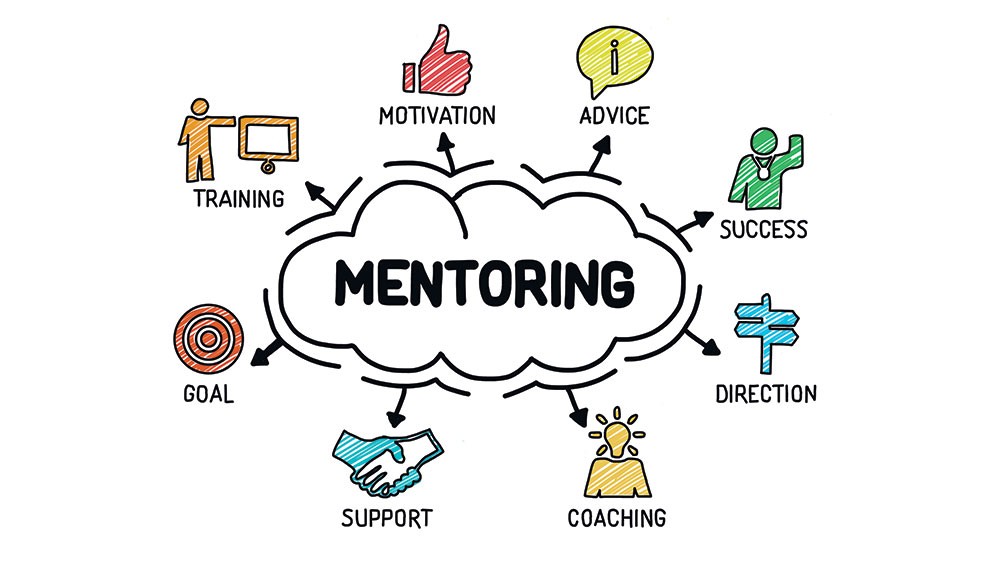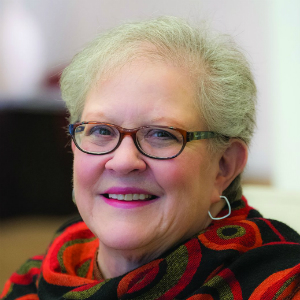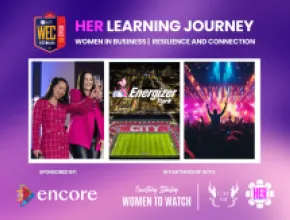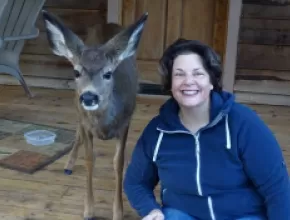I recently read some amazing books about women and their lives—fiction and nonfiction—that caused me to think more about the importance of mentoring and being mentored regardless of one’s station in life.
I reconnected with a person who, when we first “met” in an AOL chat room for writers, was 13 years old and who is now in her 30s and managing nonprofits. I remember the impact her poetry had on all of us and how, learning how young she was, we were astounded.
It changed my thinking about age, ability, gender and acceptance.
For this portion of the Friday With Joan March 2019 newsletter, I asked women I know through various professional affiliations—as clients’ staff, as students in classes, as suppliers for clients’ meetings, and generally through a broad professional network—to respond to questions about mentoring. Not all were able to respond, but those who were able are included.
Each person who was able to respond has had a different path, and one that provides interesting reading regardless of where you are in your career or life.
I hope that those of you reading this will add your stories to theirs or send your comments to me at FridaywithJoan@aol.com if you would like the stories posted unattributed.
Also helpful is understanding the difference between what it means to be a mentor versus a coach, available via these two articles: “What's the Difference Between a Coach and a Mentor?” and “Know the Difference Between Coaching and Mentoring.”
This additional information clarifies the relationships.
It’s tricky because some are charging to mentor while I think that a mentor should do so out of the goodness of their heart to ensure growth in another human being.
Coaching: The International Coach Federation defines coaching as the following:
“Partnering with clients in a thought-provoking and creative process that inspires them to maximize their personal and professional potential.” – short term.
Mentoring: A simple, broad definition of mentor is :
an experienced and trusted advisor.” – long(er) term.
Also consider reading this article from Harvard Business Review: “What the Best Mentors Do,” written by Anthony K. Tjan. It is introduced with this: “Having interviewed close to 100 of the most admired leaders across business, culture, arts, and government, one important characteristic stands out: They do everything they can to imprint their ‘goodness’ onto others in ways that make others feel like fuller versions of themselves.
"Put another way, the best leaders practice a form of leadership that is less about creating followers and more about creating other leaders.”
A personal note: I have worked for more than 60 years if babysitting is included. And I have been fortunate to have mentors my entire life, from teachers to community members to those in volunteer positions with the Dayton YWCA, to the people I asked to help me before I moved to Washington, D.C., in 1978. I have been a mentee while I was mentoring.
And what Liz Dane says below about not being afraid to ask is critical.
All the person can say is no. And if they do, don’t take it personally; everyone is busy. Do ask if there is someone else to whom they can refer you.
In our industry, as in life, I’ve found that the connections we make can be invaluable.
The following responses have been edited for clarity and length. If we have, in so editing, made any errors, the fault is ours and not the respondents.
If email addresses appear, you are invited to contact those interviewed.
Liz Dane, Regional Director, Mid Atlantic, Visit St.Pete/Clearwater
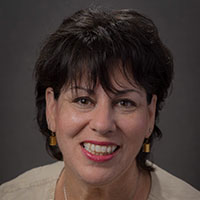
Liz@visitspc.com
Generation: Boomer
Total years working (from your very first job, including babysitting!): 46
Q1: What impact have mentors (vs. coaches) had on your life and on your work?
Liz Dane (LD): This question is timely. The actor, Leslie Odom Jr. of Hamilton fame, shared with us at Destination Showcase last week that he would not be as successful today without mentors. His mentors went back as far as fifth grade. My mentors go back that far, also. My fourth-grade teacher, an amazing teacher in my senior year of high school and then in my career in the industry. What did all those mentors have in common? They believed in me, Liz! They appreciated who I was. They “got” me. They got my sense of humor and how I viewed the world. They took that and pushed me to use all of that to be successful.
Q2a: Of mentors who have influenced you, approximately what percentage identified as male? As female?
LD: My fourth-grade teacher was a beautiful woman of whom I recently reconnected. But, I am sad to say that the rest of my mentors have been men. Why is that sad? Women should be mentored by strong women. However, the experiences I had with women bosses and leaders were not positive. There was a competitive component to the relationship, and not one that enabled growth. My mentors were predominantly people with whom you worked.
Q2b: If you asked someone to mentor you, were you ever refused? And if so, what was the impact of that occurrence/those occurrences? (I ask this because I’ve heard that there are fewer people willing to mentor and more asking for fees to be coaches when in the past they might have mentored.)
LD: I never asked. I wish I had.
Q3: In what ways did those who did mentor you influence you? What was the impact of their mentoring? How did gender/gender-identity matter to the mentoring relationship?
LD: I would go back to Q2 on the answers to this question.
Q4: In what ways has your life been enriched by either reverse mentoring (being mentored by someone you were mentoring) or by mentoring others?
LD: I never have been an official mentor to anyone. However, people approach me frequently for advice, and quite frankly I don’t shy away from offering unsolicited advice.
Q5: In selecting someone to be a mentor, what is your advice to the seeker?
LD: Don’t let anyone who has a lot of experience intimidate you. Often they want to share what they have learned.
Liz Erikson, retired
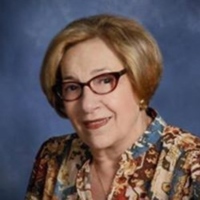
She was previously interviewed, wrote a free-form response:
“Most of my supervisors were men in the late ’60s and ’70s. Norm Howard was my front office manager when I was a room clerk on the front desk of the Sir Francis Drake Hotel. He mentored me on how to interview with the vice president of development, Charles Craddock, for Princess Hotels. They had just purchased the hotel from Western International Hotels (Westin). Mr. Craddock was seeking an executive secretary as he was moving to San Francisco.
Norm advised me on how to sell myself to get the job. I had just graduated from SFCC Hotel & Restaurant School. Wanting a career in the hospitality industry, I have to tell you I was not qualified for the job. I did not take shorthand, nor had I ever worked with the Dictaphone. He hired me anyway and nine months later Mr. Craddock got me promoted to a sales manager position. He mentored me by introducing me to customers, had me handle their reservations, speaking with the hotels about issues Mr. Craddock did not want to be bothered with.
The VP of sales for Princess, Marty Williams, was also a mentor. He taught me about customer service, how to build trust with your clients, proper follow up after the sale was completed.
These two men prepared me for my next step in the industry.
My next mentors were at the Fairmont. In the beginning this group of men had little tolerance for anyone until you proved to them that you could handle yourself in all business situations. They insisted that you mentally acted like a man. The men that served as mentors during these times were Richard Swig, Peter Goldman, Herman Wiener and John Metcalf.
A woman had to be tough but once they respected you and understood that you did make sound decisions, then you were invited into their inner circle and were given access to them whenever you had a question or business dilemma.
In the late 1990s when Canadian Pacific Hotels purchased us, mentoring changed. The Canadians had a more structured human resources system and had programs for the development for staff.”
I asked Liz if she ever felt discriminated against because she was a woman. She wrote:
“Sure. I remember when I went to hotel and restaurant school, where I was the first woman student executive chef of City College of San Francisco’s kitchen where we fed 4,000 students a day. Some of the chef instructors thought it was a joke [that a woman was in this position]; some of the male students didn’t want to listen to me.
That time in my life is a good chapter of the book that I will never write. Yes, we did not get equal pay for equal work. One my chef instructors attacked me in a stairwell and luckily one of my fellow students came down the stairs as this man was grabbing me and shoved him down the stairs. Yeah, a fellow student. I could give you names but that was so many years ago.”
Tracie Gilstrap, Sr. Associate Director, Youth INC and ministry student studying organizational capacity in religious settings
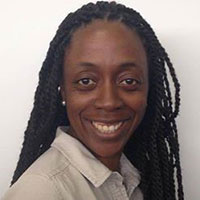
Generation: Gen X
Total years working (from your very first job, including babysitting!): 37
Q1: What impact have mentors (vs. coaches) had on your life and on your work?
Tracie Gilstrap (TG): I have always had mentors and they have helped me navigate difficult work environments when I was lot younger. In life they have demonstrated to me how to show up for myself even when the circumstances were challenges.
Q2a: Of mentors who have influenced you, approximately what percentage identified as male? As female?
TG: In my work (secular) environment it has been almost 100 percent female. In my faith work for school and church it has been four men. Very recently, my school assigned me a mentor, a woman, who is now part of my circle of mentors.
Q2b: Were your mentors predominantly people …
- with whom you worked?
- assigned to you in your workplace?
- outside your workplace in the same industry in which you worked?
- outside the industry you worked?
- in an industry in which you wanted to work?
- from a variety of walks of life?
TG: There have been about women that I worked with in my places of employment that worked adjacent to me or supervised me. They were women of color who wanted to see more women of color represented in the nonprofit sector. When I stepped into the room for a presentation or entered any meeting I had been prepped and well-rehearsed to ensure that I was the best I could possibly be. There was no room for a second chance or an error.
As for my Christian journey, my male mentors have seen “the calling” on my life and they have encouraged, cheered me on and given wisdom when necessary. They have even cleared paths for me that have been blocked by a patriarchal system. For example, there has been no positive example of a single mom becoming a pastor in the Lutheran denomination. I guess there is a stigma and shame that I should feel about that. Women have even suggested that I would not finish school as a single mom because of the challenges! Graduation is on deck for May 2019.
Q3a: In what ways did those who did mentor you influence you?
TG: The male mentors provided me with tools; literary resources that would help to get me to the next level. The female mentors in the work place would explain their paths and pitfalls. It was extremely important for many of these women that I continue to clear the path for the women behind me. What was the impact of their mentoring? I am currently a mentor to a young woman at my place of employment. There are behavioral pitfalls that happen when you are a young person of color that don’t happen to our counterparts. I continue to mentor this young woman on how to navigate challenging circumstances as well as clear the path, if necessary, for her to continue to climb.
Q3b: How did gender/gender-identity matter to the mentoring relationship?
TG: With the men, they provided job-focused mentoring support. With the women, there was a lot of mentoring around managing perception and emotions.
Q4: In what ways has your life been enriched by either reverse mentoring (being mentored by someone you were mentoring) or by mentoring others?
TG: My experience has always been I can learn from any and all experiences. I have learned from my mentee and the men how to be a bit more fearless in getting things done.
Q5: In selecting someone to be a mentor, what is your advice to the seeker?
TG: I think you should look for someone whose outcome is one that you hope for. I think how they got to where they are should definitely look different from your approach. The different approach is where you get the lessons.
Susan Klemmer, previously a meeting professional and most recently chief operating officer at an association. She is actively job-searching.
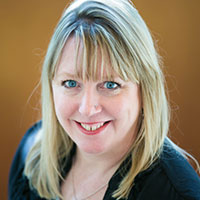
Generation: Gen X
Total years working (from your very first job, including babysitting!): 36
Q1: What impact have mentors (vs. coaches) had on your life and on your work?
Susan Klemmer (SK): I was very fortunate early in my professional career to connect with someone who is not only a professional mentor, but who has become, throughout the years, a personal mentor and friend. The impact has been extraordinary; I have made decisions about starting and leaving and growing in jobs, certifications, professional development and more with her input. I learned professional ethics, diplomacy and how to negotiate gender and generational differences in the workplace through discussions and her insights. I’ve had several self-appointed male career coaches/mentors that have focused mainly on how to help me “get ahead,” whereas my female professional mentor has provided 360-degree career support.
Q2a: Of mentors who have influenced you, approximately what percentage identified as male? As female?
SK: 75 percent male, 25 percent female
Q2b: Were your mentors predominantly people …
SK: …with whom I worked, outside my workplace in the same industry in which I worked and outside the industry in which I worked.
Q2c: If you asked someone to mentor you, were you ever refused? And if so, what was the impact of that occurrence/those occurrences? (I ask this because I’ve heard that there are fewer people willing to mentor and more asking for fees to be coaches when in the past they might have mentored.)
SK: I’ve never had a formal mentoring “agreement.” (My husband is enrolled in a mentor program at work; he’s the mentee. He has stayed in touch with the mentor for guidance even though the formal work-sponsored program has ended.)
Q3: In what ways did those who did mentor you influence you? What was the impact of their mentoring? How did gender/gender-identity matter to the mentoring relationship?
SK: Gender identity was relevant when I needed someone who could relate to a gender-specific situation; otherwise, except as mentioned earlier about perceived goals of male “mentors” vs. female, I don’t think gender identity makes a difference.
Q4: In what ways has your life been enriched by either reverse mentoring (being mentored by someone you were mentoring) or by mentoring others?
SK: I have never entered into a formal mentoring agreement as a mentor, but I have had several employees and former employees credit me with setting the example they needed or providing guidance around decision making. I’ve been told I mentored them into their next position. For me, that has been highly rewarding, especially when I see the growth of an individual that I knew was possible before they did.
Q5. In selecting someone to be a mentor, what is your advice to the seeker?
SK: Look for someone who has what you want, professionally. I selected my first mentor by hiring her, with no expectation that our relationship would ever extend beyond what was contracted. My second mentor took the role conditionally to see if we would be a good fit before progressing, and we are. Both of them were women I admired and respected, either for their standing in the “community” I was in at the time or for their willingness to share their knowledge without reservation.
Fiona Pelham, CEO, Positive Impact
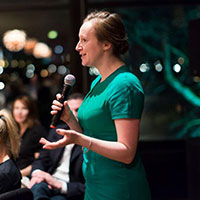
fiona@positive-impact-events.com
Generation: Gen X
Total years working (from your very first job, including babysitting!) 20 plus!
Q1: What impact have mentors (vs. coaches) had on your life and on your work?
Fiona Pelham (FP): Unmeasurable. From mentoring me into being able to chair an international meeting the morning of the 2016 U.S. election (When I woke with a crisis of confidence thinking the U.S. wasn’t able to accept female leaders, so will they accept me as a chair?), to constantly casually suggesting I step up to the next “big thing.”
Q2a: Of mentors who have influenced you, approximately what percentage identified as male? As female?
FP: 50 percent of each.
Q2b: Were your mentors predominantly people …
FP:
- assigned to you in your workplace? Never
- outside your workplace in the same industry in which you worked? About 1/3rd
- outside the industry you worked? About 1/3rd
- from a variety of walks of life? About 1/3rd
Q2c: If you asked someone to mentor you, were you ever refused? And if so, what was the impact of that occurrence/those occurrences? (I ask this because I’ve heard that there are fewer people willing to mentor and more asking for fees to be coaches when in the past they might have mentored.)
FP: No one ever refused to mentor me, but I always asked in a way that made sense to them (i.e., aligned with an area they were passionate about making a difference in), and I was always clear in the time commitment I was requesting.
Q3: In what ways did those who did mentor you influence you? What was the impact of their mentoring? How did gender/gender-identity matter to the mentoring relationship?
FP: The reality of some of my mentoring is that there were limited females who had been in my position before, so I had to ask for male mentors, too. With my female mentors I never hid my fears and over time I have sought out male mentors who were empathetic so I could always say what was on my mind. Earlier in my career and with less experience, I found the male mentors I had just wanted to tell me how to do things, and that always annoyed me. Now I’m at a stage in my career where I’m comfortable and confident enough to do things my way and I see mentoring as a contribution to that rather than a “how to” guide!
Q4: In what ways has your life been enriched by either reverse mentoring (being mentored by someone you were mentoring) or by mentoring others?
FP: For everyone I have ever mentored I have always done so because I felt they could mentor me at the same time. People I have mentored have usually been the most honest in their contributions of how I should increase my leadership in the world. In 2019 I have created a website of stories and that idea came from someone I mentored/who mentored me, and it’s taken many mentors to move this from idea to reality as it is a scary endeavor.
Q5: In selecting someone to be a mentor, what is your advice to the seeker?
FP: Find someone who isn’t afraid to share their opinion, who you trust and who you would want to hear the not-so-great stuff from. Our industry is overflowing with amazing potential mentors, and Positive Impact’s annual campaign to celebrate International Women’s Day is testament to that. It is also a great opportunity to thank your mentor in addition to reading stories about women who have made a difference. A mentor’s role is not just about encouraging you, it is also about challenging and contributing to you; you should want them to make you feel uncomfortable sometimes.
Avis Naomi Smith, Owner, Naomi and Pearl Apple Confections
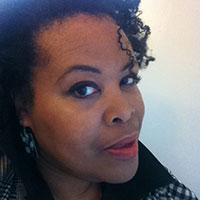
Generation: Boomer
Total years working (from your very first job, including babysitting!): 39 years
(A personal note: I first met Naomi in the late ’80s or early ’90s when she attended the PCMA/Sheraton Showcase in Baltimore. A friendship was born.)
Q1: What impact have mentors (vs. coaches) had on your life and on your work?
Avis Naomi Smith (ANS): They have had a great deal of impact for me. Oftentimes, they are the only ones who show any interest in my work and have been a great support system.
Q2a: Of mentors who have influenced you, approximately what percentage identified as male? As female?
ANS: 50/50. I have both male and female mentors.
Q2b: Were your mentors predominantly people (ANS responses follow in non-bold)…
- with whom you worked? One yes, a former employer, and one no.
- assigned to you in your workplace? No never.
- outside your workplace in the same industry in which you worked? Yes, one
- outside the industry you worked? Yes one.
- in an industry in which you wanted to work? No.
- from a variety of walks of life? Yes, absolutely.
Q2c: If you asked someone to mentor you, were you ever refused? And if so, what was the impact of that occurrence/those occurrences? (I ask this because I’ve heard that there are fewer people willing to mentor and more asking for fees to be coaches when in the past they might have mentored.)
ANS: I have never asked anyone to become a mentor, but I did ask for help from one woman. I operated a small banquet facility and she attended an event one evening. She came back to the facility a few days later to speak with me and to seek my help in operating her small food business at a Maryland state office building. Her background was in janitorial services. Her company was minority certified. Her certification allowed her to move into a new contract though she had no previous experience. I helped her organize the small cafeteria in the building, set up new foodservice vendors, and a host of other things. She wanted to hire me as an employee, however, what I wanted was to learn how to become minority certified. She refused to show me or tell me and that ended the new relationship.
Q3: In what ways did those who did mentor you influence you? What was the impact of their mentoring? How did gender/gender-identity matter to the mentoring relationship?
ANS: Certainly, the process by which I manage problems was influenced of my mentors. I learned to face many issues and difficulties with less emotion. They helped me to understand that any adversity can be managed and resolved even if the answer isn’t what I was expecting or wanted. The male mentor is much like Steve Harvey. Straight-forward advice peppered with stories and hidden messages that had some type of life lesson attached. This was very different from the other mentor, who was a woman. She often presented information with advice that would save me steps or to avoid circumstances probably associated with the “glass ceiling.”
Q4: In what ways has your life been enriched by either reverse mentoring (being mentored by someone you were mentoring) or by mentoring others?
ANS: I have felt a great deal of satisfaction in sharing the knowledge that I have with others who are interested. I do feel like I am making a real impact on someone’s life that may ultimately lead to a better living for them.
Q5: In selecting someone to be a mentor, what is your advice to the seeker?
ANS: Seek out someone who knows your industry OR someone who has a similar background. Talk to them to determine if you share similar thoughts about both.
Related Reading From the March 2019 Edition of Friday With Joan
Click here to view additional content in the 03.01.19 Friday With Joan newsletter.



